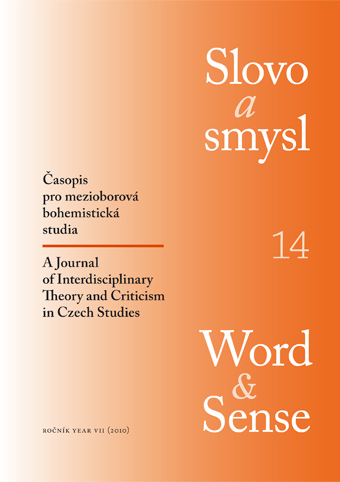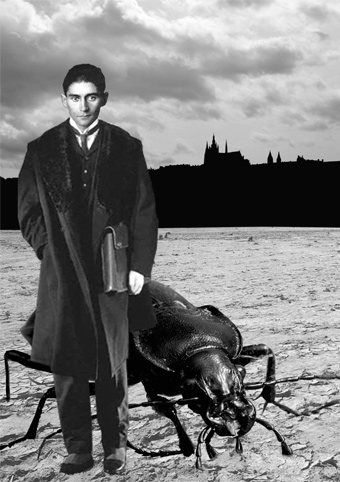The Death of Salomé (A Nubian Apocrypha)
Day after day Salomé came in secret with a single slave to the hut of Séhon, hunter of gazelles.
The beautiful boy, all tanned and dark, with such white teeth that nothing was brighter, with black tresses that shone to a dark blue hue, as though sprinkled with azure powder, was loved by the Jewish princess, who tried in vain to hide the traces of old age with make‑up.
Only her eyes still shone in bright, flaming points like stars. But the exhausted pallor of her withered skin testified to their deceit.
Did Séhon know who the strange woman was who brought him gifts and followed him with passionate words? He barely sensed what shades crept behind the figure that appeared daily at the threshold of his hut, agitated, errant, sorrowful, concealed in a purple peplum, with her arms lost in the folds of long, rustling sleeves, her head veiled to the breast by a silver veil, with dark chalcedony in her ears.
All of her movements expressed desire to entice the boy, who always escaped her, and who had no more than a smirk for her age and ugliness.
And often when she suddenly collapsed in a corner of Séhon’s hut and put her face in her hands, not to weep, but to flood her eyes with darkness and emptiness, and she remained there for a long time, motionless, without thinking, her figure expressed such suffering that even Séhon was moved for a time and spoke kindly to her. But then Salomé would rise up, and the chalcedony earrings would clatter ominously in her ears, and pride would lash out of her eyes. She would give up, because she did not want to be pitied, but loved.
She, whose arms, whose breasts, whose hips had once shot forth sparks, beneath whose strength the strongest men had given way, was now powerless against this boy, for whose body, the color of the darkest amber, she yearned so insatiably.
Only one evening, when her hands suddenly emerged from beneath the wide sleeves, hands pale as a bluish ray of moonlight when it cuts through ebony clouds, Séhon approached her with interest.
He did not suspect that these were the hands that had once raised the head of John the Baptist on a silver plate with exultation, as Salomé had quivered in an inexpressibly light and supple wave of pleasure that made the precious stones hanging in her hair, on her hands, on her throat, on her breasts, on all the shining nakedness of her young body ring lightly…
Then she had triumphed through nakedness, and her youth was an insatiable abyss that swallowed masculinity after masculinity. The vapors of her body, more fragrant than galbanum, ambergris, and incense, the warmth of her skin triumphed even over the brilliance of sapphires and overpowered the resplendent, golden yellow of beryl. Her lips, aflame with infinite cruelty, blazed more than the rubies fusing in the necklace on her breast, and her eyes, almost terrible, had more fire in them than the blackest, most mysterious garnets.
Now her hands were trembling with cold: but they were nonetheless so beautiful when they had emerged suddenly in all of their nakedness, hands that seemed carved of ivory by an ancient artist, delicate hands, majestic and yet grasping predatorily and evil, the hands of a princess and the claws of a harpy. Séhon leaned down to them and, captivated, whispered words of enthusiasm, and his eyes feasted on their beauty, as a dry throat savors a chalice of tamarisk wine.
And that decided Salomé. She lowered her robes in the gray of the hut and stood up suddenly naked before Séhon.
Her eyes flamed beneath the dark arches of her brow, and she began to dance as in her youth.
Séhon gazed at her in astonishment. Beauty and suppleness returned to the body. The shoulders became rounded. The legs regained a gazelle’s slenderness.
With her eyes half closed, Salomé rocked rhythmically, and Séhon compared this woman with the women he yearned for and loved.
And suddenly the memory of them paled, and passion overcame Séhon for the revelation that was unveiling the mysterious beauty conjured up from the past before him.
What sorrow, inexpressible sorrow spoke from the eyes that gazed passionately from the darkness like two smoldering coals left from poked ash! How languishing was the whiteness of that late nakedness, that body as delicate as old cashmere!
Her feet in golden sandals soared from the earth, as though they wanted to abandon her forever.
Salomé was absorbed in dreaming, rocking her soul as well in undulant movements. Her tresses had come loose, and she did not even feel how rings of hair caught on the chalcedony of her earrings and the rubies of her necklace.
She was thinking about her youth, when she had danced in a palace of white marble, surrounded by an orange wood, before the tetrarch for the head of John the Baptist; she recalled the silence of the room, where the only sound was the lecherous breathing of men greedy for her glances, for her body slimmer than a reed… Fragrances grew thicker and became impenetrable, mingling with the red flames of candles hanging on the heavily gilded columns of algum wood.
How long ago that was! So long! She trembled. Her memories grievously ran through the dead past as hyenas through the cemeteries of the East.
She spun around. She would have dropped to the ground if she had not gathered the last remnants of her strength.
For whose head was she dancing before Séhon today? She felt that she was putting all of her being into this dance, and today, only today could she acquire his dark body, the pleasure of his kisses and the touch of his caressing hands.
Avidity obscured Séhon’s voice as he cast himself towards her, calling her name, his nostrils trembling with greed.
“Séhon!” cried Salomé, bowing to the ground, deathly tired, then dropping as silently as the evening shadow of a tree falls onto moss.
Séhon bent over her body, spread out on the ground.
He was silent now, looking at her.
She had grown old again. He saw her colored eyebrows and lashes, her painted lips, the shine of her make‑up, drops on her deathly cold forehead like condensed dew on white marble. He saw all of her almost terrible face – and turned away. He would have been swooping down greedily on a carcass like a condor. Repulsion overpowered him.
In Salomé’s eyes everything went dark. She stood up, wanting to break her pink painted nails on the floor, wanting to scratch up her useless body, wanting to cry out in furious rebellion – but she remained mute like a submissive animal. And she left, hiding her face, holding with a feverishly shaking hand the tip of her purple peplum, which was dragging the dust of the highway along behind her.
The next morning Salomé’s slave approached Séhon’s hut. She was carrying the usual gift from her mistress. But this time she trembled in fear and left so quickly that she did not even hear Séhon refusing it.
At night, when Séhon returned from the embrace of his young lover, the gift was still lying at the threshold of his hut. Séhon indifferently removed the veil to clear it away.
He cried out in horror. On a silver tray lay the head of Salomé.
Death had cut still deeper wrinkles into her forehead, and dried blood had sprayed up onto her face. And pain emitting horrible rays, red sparks, burning with reproach through the most hidden depths of Séhon’s soul stared at him from the slightly open mouth…
Translated by Kirsten Lodge.
From: Jiří Karásek ze Lvovic: Smrt Salomina. Nubický apokryf. In: idem: Gotická duše a jiné prózy. Vyšehrad, Praha 1993, pp.85–89.


